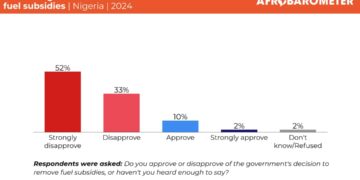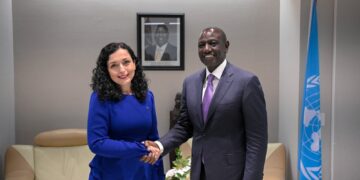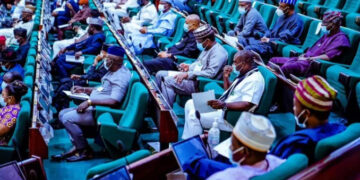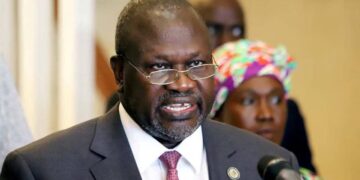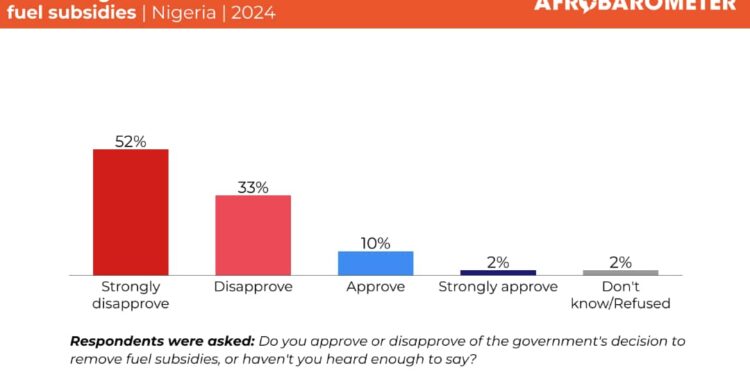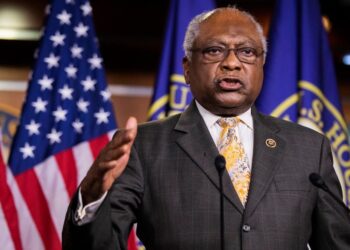By Ebi Kesiena
The latest Afrobarometer Round 10 survey has laid bare the growing discontent among citizens, as economic hardship intensifies nearly two years after the controversial policy shift.
According to the survey, a vast majority of Nigerians strongly oppose the removal of fuel subsidies, with over half advocating for its reinstatement, even if it means sacrificing funding for other crucial sectors such as health and education.
The survey, conducted by Afrobarometer, revealed the deep-seated frustration of Nigerians who believe the country is moving in the wrong direction.
The findings indicated that more than nine in 10 Nigerians (93%) express dissatisfaction with the nation’s trajectory, a staggering increase from previous years. Similarly, 88% of respondents describe the country’s economic condition as “fairly bad” or “very bad,” with 74% reporting poor personal living conditions.
The findings of the survey were presented to the public in Abuja at the office of Afrobarometer’s Nigeria partner, NOI Polls, where discussants painted a clear and concerningly grim picture of Nigeria’s current reality.
The panelists dissected the survey results, which reveal that 33% of respondents disapprove and 52% strongly disapprove of the government’s decision to remove subsidies.
Executive Director of the Citizens Advocacy for Social and Economic Rights (CASER), Mr. Frank Tietie, noted that corruption has deeply entrenched itself within the nation’s institutions, significantly hindering economic progress and social development.
Reflecting on Nigeria’s past, Mr. Tietie lamented the mismanagement of the country’s vast resources, which, in his view, has contributed to the prevailing economic hardships.
He recalled a time when Nigeria enjoyed greater economic stability and prosperity, contrasting it with the present situation, where many citizens are struggling to cope with rising living costs, noting that the government at all levels must take immediate strategic action to implement policies that promote economic stability and the equitable distribution of resources.
Speaking also as a discussant, Arigbabu Folasade, Programme Officer, Socio-Economic Rights and Accountability Project (SERAP), noted that SERAP is deeply invested in transparency and accountability, emphasising that Nigerians have failed to see the connection between the lack of transparency and accountability, the provision of social amenities, and improvements in quality of life.
She noted that power belongs to the people and that citizens must begin to demand good governance from the government.
Earlier, the Head of Social Research at NOIPolls, Raphael Mbaegbu, provided an overview of the survey findings. When asked about the most pressing issues the government should address, respondents ranked the rising cost of living as the top concern, followed by crime and security, poverty, unemployment, and electricity.
Also, Afrobarometer’s Communications Coordinator for Anglophone West and North Africa, Maame Akua Twum, explained that this latest study, conducted between June 19 and July 17, 2024, is part of Afrobarometer’s work as a leading pan-African research network that has consistently provided data-driven insights into governance, democracy, and quality of life across the continent.
